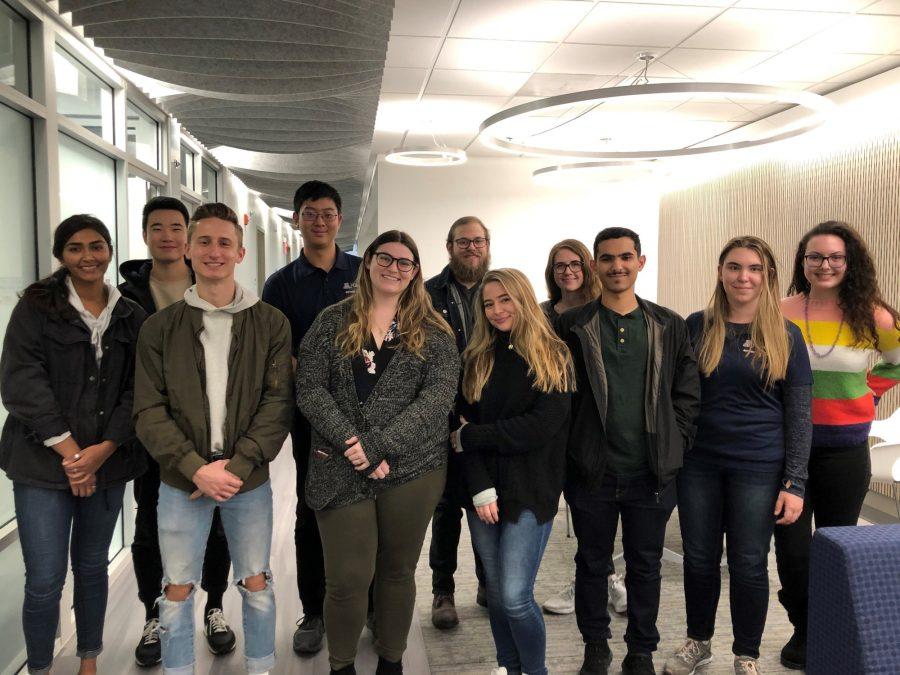University of Arizona Students Aid Refugees
University of Arizona students are doing their part to ensure refugees do not go unnoticed in Tucson.
The campus Refugee Project matches students with local organizations to assist with the resettlement of refugees coming to the U.S.
The project has several goals, said Lara Pfaff, one of the Refugee Project coordinators.
“One is to continue to develop students’ intercultural competency,” Pfaff said. “Another part is really being able to connect students. The connection between local and global is really important.”
According to Pfaff, this year’s student cohort is the largest yet, with 17 joining the program for the 2019-20 school year.
For Audrey Cohen, a senior in biomedical engineering, involvement with the Refugee Project and the Tucson refugee community has become an opportunity to get people talking.
“No one in my life knew about it,” Cohen said. “I was the first person exposed to this, and I was just exposed to it by chance. … So, I just started talking to my parents and my grandparents, my roommates, my friends. … For me, that exposure – that people saw it in the news, and they knew that I was doing something, then it was a talking point.”
Refugee Resettlement Process
As part of the Immigration and Nationality Act and the Refugee Act, a refugee can be granted asylum in the U.S. if they have “experienced past persecution or has a well-founded fear of persecution on account of race, religion, nationality, membership in a particular social group, or political opinion,” according to the U.S. Department of State’s Refugee Admissions.
Once refugees are awarded refugee status, they are given certain economic and social services by domestic resettlement agencies.
One such resettlement agency is Lutheran Social Services of the Southwest in Tucson.
The organization provides mentorship and tutoring opportunities for refugee youth from across the area. According to Emily Macaluso, refugee education program manager at Lutheran Social Services of the Southwest, volunteer assistance is a key part of their ability to serve the refugee community and expand these programs.
“We have big plans for what we’d like to do, but we just need the staffing,” Macaluso said. “All of our programs run off of volunteers. The UA Refugee Project gave some of the absolute best tutors last year because they were people who were interested in working specifically with refugees. They were with it, they were relatable for the kids, they gave of their time and their resources so openly and some are still coming back this year.”
Cohen volunteered with Lutheran Social Services as a tutor last year, and said she admired how much value the refugees placed on their own education.
“What originally stood out to me was how resilient the refugees were and how much their education matters to them,” Cohen said.
Jonathan Chibasa, the refugee school impact coordinator at Lutheran Social Services of the Southwest, came to Tucson 11 years ago as a refugee from the Democratic Republic of Congo.
“The Tucson community is very unique and happy to meet new people,” Chibasa said. “They are welcoming and want to engage people, to know what they’ve been through, and want to use their resources to help.”
RELATED: Simulation event offers insight into refugee experience
Connecting with Refugees
Through their partnership with agencies throughout the Tucson area, students with the Refugee Project engage with refugees and asylum seekers through activities like after-school tutoring, organizing social activities, refugee intake and teaching citizenship and English language classes.
“As a volunteer, I’m there to help comfort them and make sure they get access to the things they need,” said UA student Kyle Johnson, a senior in biomedical engineering. “My parents are both refugees from Vietnam, and they always told me stories about how volunteers helped them get through, so I’m trying to give back to that community now.”
The Refugee Project maintains partnerships with several local organizations to help facilitate the students’ placements at the agencies. For the 2019-20 program year, they added a new partnership with the Casa Alitas Program, which focuses on asylum seekers.
Astrid Maury, a senior majoring in physiology at UA, said her experience with the Refugee Project and local refugee resettlement organizations have made her more aware of the deeper policy issues the refugee community faces.
“When you start doing something, you learn about another thing is causing it, and then it’s this whole cascade of bigger issues,” Maury said. “Not even just our own politics, but with (the refugees’) own government structure. It’s so sad to see the things that are happening to them and hear what the families go through. … Community support is really important, and we need volunteers to care about these issues.”
The students who participate in the Refugee Project will complete 45 hours of volunteer service. They are provided resources, visibility to organizations and information about refugees and asylum seekers in the community.
When students complete the program, they are awarded an Engaged Learning Experience notion on their academic transcript.
“I’ve been really inspired by the students that I get to work with,” Pfaff said. “I’m excited to connect with a group of students who are so globally minded and passionate about getting involved in the community.”
Opinion pieces, guest commentary, letters and online comments do not represent the opinion of the Daily Wildcat.








